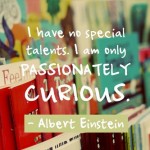 It might seem largely negative to have a fraction of the knowledge we need to truly understand a topic, but new research from the University of California, Berkeley, suggests that this actually acts as the spur to encourage us to gain that level of expertise.
It might seem largely negative to have a fraction of the knowledge we need to truly understand a topic, but new research from the University of California, Berkeley, suggests that this actually acts as the spur to encourage us to gain that level of expertise.
The findings challenge previous work that suggested that curiosity on its won is sufficient to have a desire to learn, which they believe has implications, even for more novel educational approaches, such as the Montessori approach.
“It’s very in vogue to talk about curiosity as a strategy to increase learning, but it’s unclear how to engage people’s curiosity,” the authors explain. “Our study suggests it’s the uncertainty — when you think you know something and discover you don’t — that leads to the most curiosity and learning.”
Tailored learning
The authors believe that this could lead to more tailored learning in classrooms as teachers probe the misconceptions students have about what they know. For instance, asking them how they think things work can help to surface any gaps in their knowledge, and prompt those gaps to be closed.
The findings emerged after volunteers were given 100 trivia questions to answer. They began by giving their best guesses to each question alongside their confidence that their answer was correct on a scale of 1-7 and their interest in learning more about the subject. Each volunteer was then shown the answer to the question for a few seconds, and asked to reveal their level of surprise at the answer.
To test their capacity to learn, the volunteers were then presented with all of the questions they’d previously got wrong again and given a chance to try again. Evaluators reviewed each answer to gauge how close it was to being correct, together with the gap that existed between what the participant thought was the correct answer and what it actually was.
Typically, each volunteer got 18 answers right in the first phase, before this leapt to 69 correct answers in the second phase. The level of curiosity they revealed seemed to accurately reflect their level of interest in each question topic, with this also correlating with the accuracy of their prediction about their answers.
“Those who were more curious were better at guessing correctly in the testing phase, which suggests they were more inspired to learn,” the authors explain.
They believe that their findings could have particular relevance for learning methods such as the Montessori school, which posits that child-centered learning is key.
“Maria Montessori said you should present children with something they are ready to learn, but she didn’t talk a lot about what being ready meant,” they conclude. “Our findings expand on the idea of readiness by showing that what children think they know, but don’t know, can boost their curiosity and motivate learning.”